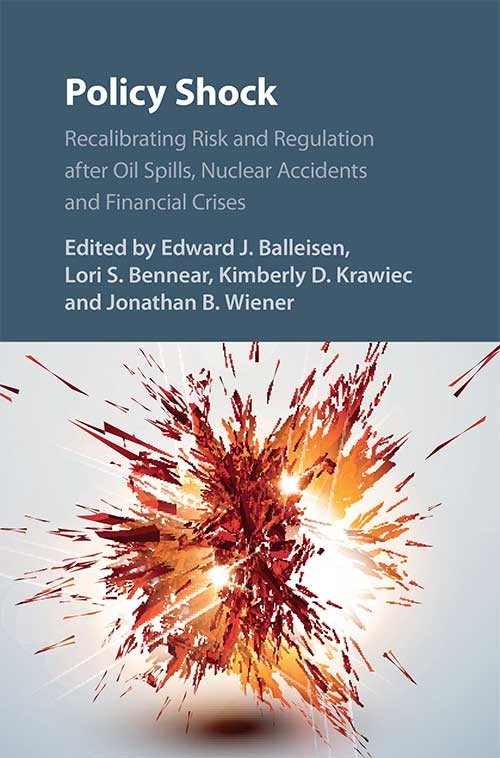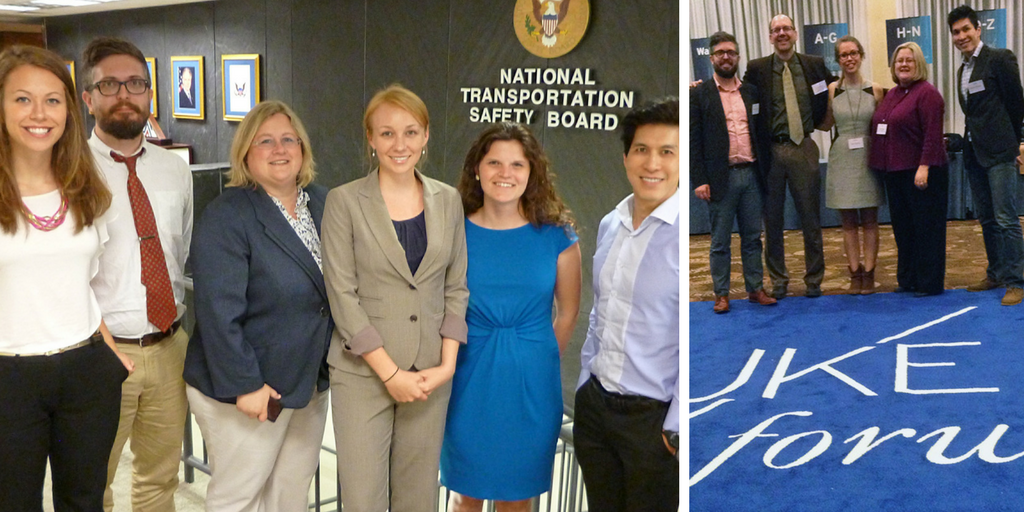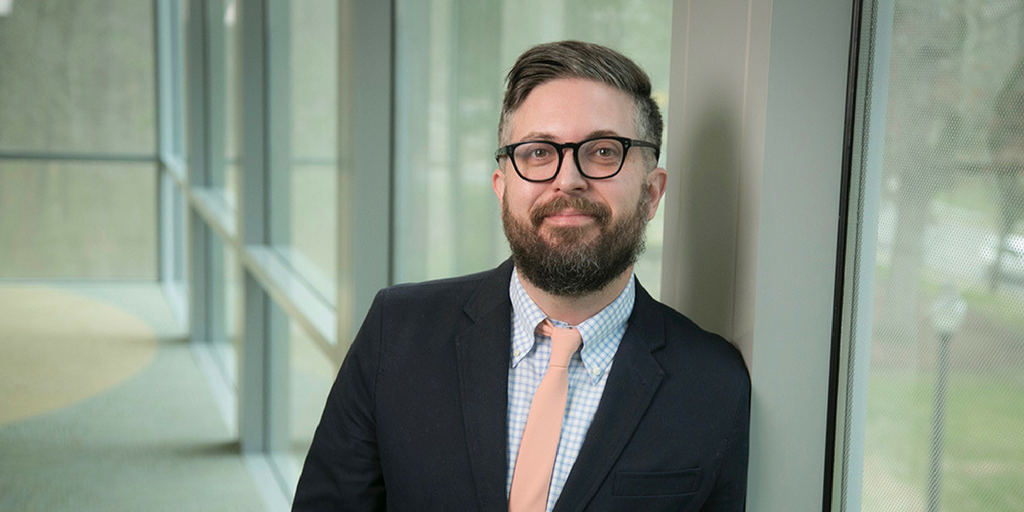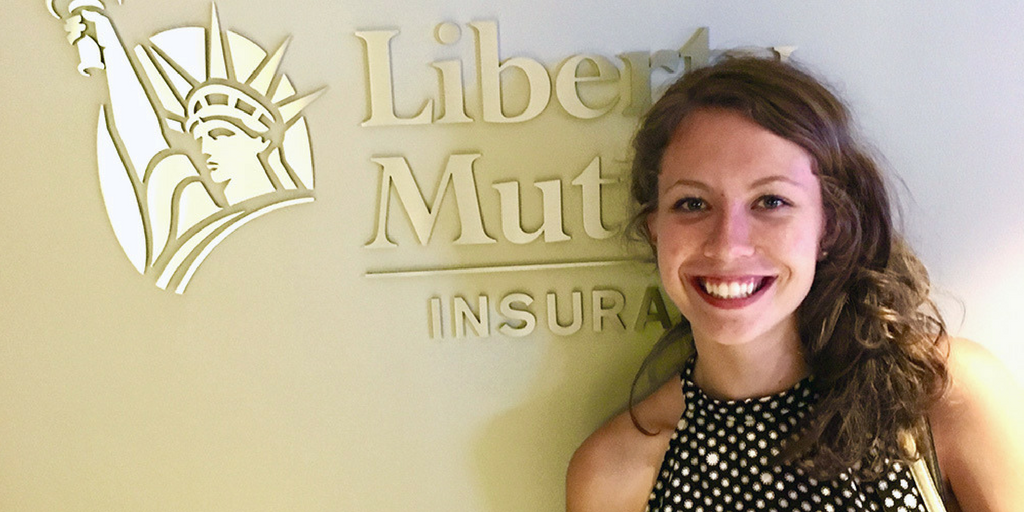Learning from Disaster: A Duke Team’s Book Sheds Light on Government Responses to Crises

What happens next?
A new book edited by Duke University faculty examines how such crisis events reshape law and regulation, and how governments can learn from disaster. Policy Shock: Recalibrating Risk and Regulation after Oil Spills, Nuclear Accidents and Financial Crises is now available from Cambridge University Press, edited by Edward Balleisen, Lori Bennear, Kimberly Krawiec and Jonathan Wiener.
“People often point to crisis events as leading to major regulatory action,” Wiener told Duke Law News. “And yet there was a need for research on how that actually occurs, and on the variety of different types of regulatory change that have followed crisis events.”
Duke students on a Bass Connections project team, Regulatory Disaster Scene Investigation, contributed to the book. Kate Preston, a public policy major and a senior at the time, said the project “took us all over the country, from conducting oral history interviews and attending a congressional hearing on the Hill in DC, to presenting on our research in Dallas as a part of the Duke Forward campaign.”

In addition to Preston and the faculty leaders, the team included two master’s students in environmental management (David Cheang and Megan Hayes), a Ph.D. student in environmental policy (Emily Pechar) and a Ph.D. student in history (Jon Free). The group investigated how governments make sense of crises and major accidents, especially through commissions of inquiry or permanent safety boards.
“As the only undergraduate, I remember being nervous about what I could bring to the table,” Preston recalls. She worked closely with teammate Jon Free, who also stepped out of his comfort zone. “By joining a team mostly comprised of students with backgrounds in policy and economics,” he said, “I forced myself to answer the questions of why history mattered to the issues we were exploring and how a historians’ perspective could inform policy research in productive ways.”

As he honed his vision of an engaged historian, Free also grew as a mentor. “Working one-on-one with Kate offered me the chance to mentor an advanced undergraduate student in a collaborative research setting, something very few Ph.D. candidates in history receive training in,” he said. He completed his degree in 2016. “Today, I lean on that experience whenever I’m helping students develop and execute research projects, whether as a part of a class I’m teaching or in my role as research development director at the Duke University Energy Initiative.”
The two teammates worked together on a white paper and a section of a chapter in the book. “This collaborative effort with Jon prepared me for the kind of work I now do as a senior associate consultant at Liberty Mutual,” Preston said. “I learned new ways to structure my research approach, organize and manage information and identify the core questions we needed to answer.”

At coffee shops all over Durham, they sipped their way through 15 drafts. “Bass Connections was the first time I had been introduced to this type of iterative approach,” said Preston. “It is now an essential tool in the way I approach my current role. Every day my team is continuously improving how we structure our information and analysis to drive better solutions for our clients.”
Being the youngest member of the team helped her build critical skills. These days, Preston reflected, “I often find myself in professional situations where I am the youngest person in the room and need to confidently express my thinking or analysis and often challenge existing preconceptions. My Bass Connections experience helped me develop the confidence to have my own perspective.”
For Free, who is now a postdoctoral associate at Duke, the experience helped him understand “how to make history matter.” Through this intensive collaboration, “we were able to build a historically-informed argument about why some standing investigative agencies are more effective than others.” He brings this understanding to his work at the Energy Initiative, “where I am almost always the only historian (or, indeed, the only humanist) at the table,” he said. “I can navigate conversations about interdisciplinary research with the confidence not only that history matters, but also that I have been able to make it matter in similar situations in the past.”
Learn More
- Read more from Jon Free and Kate Preston.
- View examples of other publications resulting from Bass Connections project teams.
- Obtain a discount code for purchasing the book.